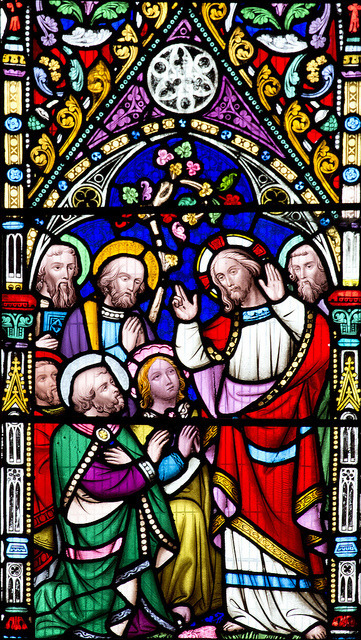
HOMILY for Easter Saturday
Acts 4:13-21; Ps 117; Mark 16:9-15
Faith is never something just personal and private. It is always communal and relational, and so, we see today that faith in the resurrection requires that we trust the eyewitness account of another; believe in the testimony of other people. But it seems that this might involve believing the sort of people one might not usually trust or consider reliable.
For as the Holy Father reminded us recently, “according to the Jewish Law of the time [of Christ], women… were not considered reliable, credible witnesses”. Yet Jesus appeared first to Mary Magdalene. And she wasn’t just any woman, but one who had been in the grip of demons – addicted, lost, and desperate – and so, probably doubly-excluded. And what about the two disciples in the countryside? Their testimony was admitted by the Law. But these were two men who were fleeing in despair, overcome by what they’d thought was the defeat and failure of Jesus. One might say they were cowards who’d abandoned the rest of the group in Jerusalem. But Jesus appeared to them too. Jesus chose these people – the disregarded, the weak, and the marginalized; those whom one might well dismiss, distrust, and begrudge – as the first eyewitnesses to God’s greatest work.
Why? Because faith in God is founded on faith in other people, on a relationship of truth and friendship between people. So, when our human relationships breakdown and become dysfunctional, faith in God becomes very difficult, or risks becoming completely individualistic, a projection of mere self-belief. But faith, and especially faith in the resurrection, requires that we believe others, trust in a community of witnesses. And so, the risen Lord reconciles and heals the brokenness of our human relationships by first appearing to those who are in some way excluded and unwanted. Thus, it becomes necessary, if we’re to have faith in the resurrection and participate in its grace, to trust, value and listen to every human person, beginning with those who are considered least in our world.
However, sometimes our faith in others is lost because of the wounds inflicted on us by some others, including members of our community, our Church. We can no longer trust such people, and perhaps the other disciples felt this way about the two who had left them to flee to Emmaus. But, again and again this week, when Jesus appears, he tells his disciples to see and to touch his wounds. This requires great trust, of course, but moreover, to ask the very people who had in some way caused those wounds to do this requires mercy and forgiveness. And thus, the risen Lord heals and transforms our fractured human relationships by first forgiving us, teaching us to be merciful, to avoid hardness of heart, and, so, to forgive others as we have been forgiven. In this way, we come to experience the peace of the resurrection.
Forgiveness, mercy, and faith in humanity, which includes all in God’s risen life, is the new-ness of the resurrection that we are invited to believe in. So, our resurrection faith is never merely private and personal but is always communal and relational because it elicits my trusting another, forgiving others, and loving my brothers and sisters; faith in Christ’s resurrection transforms me and transforms our world through a new belief in people, through friendship. Isn’t this what the Lord desires when he says to us: “Go into all the world and preach the gospel to the whole creation”? (Mk 16:15)
mattythearchitect reblogged this from lawrenceop
lawrenceop posted this